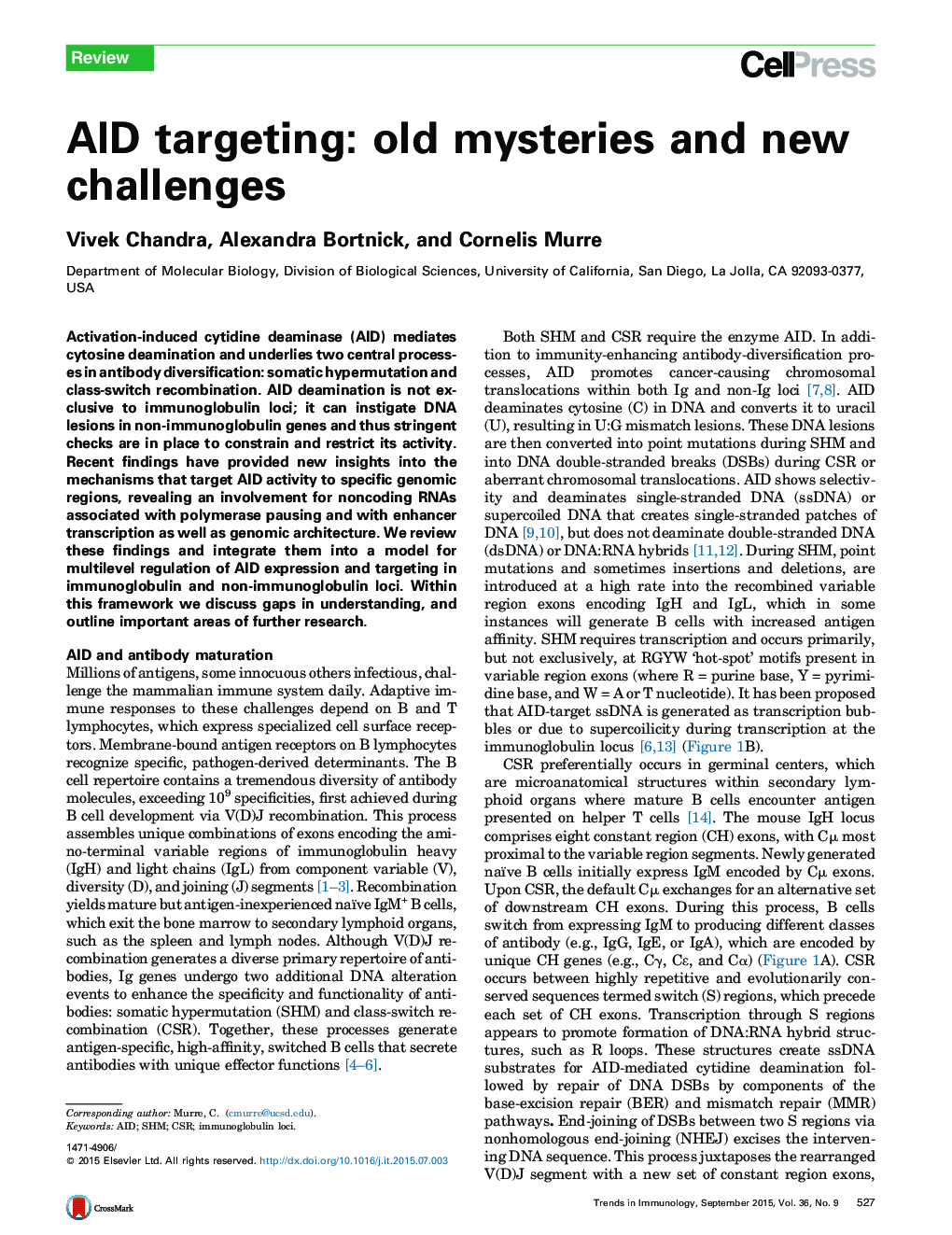| Article ID | Journal | Published Year | Pages | File Type |
|---|---|---|---|---|
| 4359772 | Trends in Immunology | 2015 | 9 Pages |
•Regulation of AID expression and targeting ensures antibody diversification and genomic stability.•E-proteins, B-lineage, and transcription factors associated with B cell activation regulate AID expression.•Antisense transcription targets AID to Ig and non-Ig loci, and is regulated by the RNA exosome complex.•Intronic switch RNA targets AID to S regions for class-switch recombination.
Activation-induced cytidine deaminase (AID) mediates cytosine deamination and underlies two central processes in antibody diversification: somatic hypermutation and class-switch recombination. AID deamination is not exclusive to immunoglobulin loci; it can instigate DNA lesions in non-immunoglobulin genes and thus stringent checks are in place to constrain and restrict its activity. Recent findings have provided new insights into the mechanisms that target AID activity to specific genomic regions, revealing an involvement for noncoding RNAs associated with polymerase pausing and with enhancer transcription as well as genomic architecture. We review these findings and integrate them into a model for multilevel regulation of AID expression and targeting in immunoglobulin and non-immunoglobulin loci. Within this framework we discuss gaps in understanding, and outline important areas of further research.
